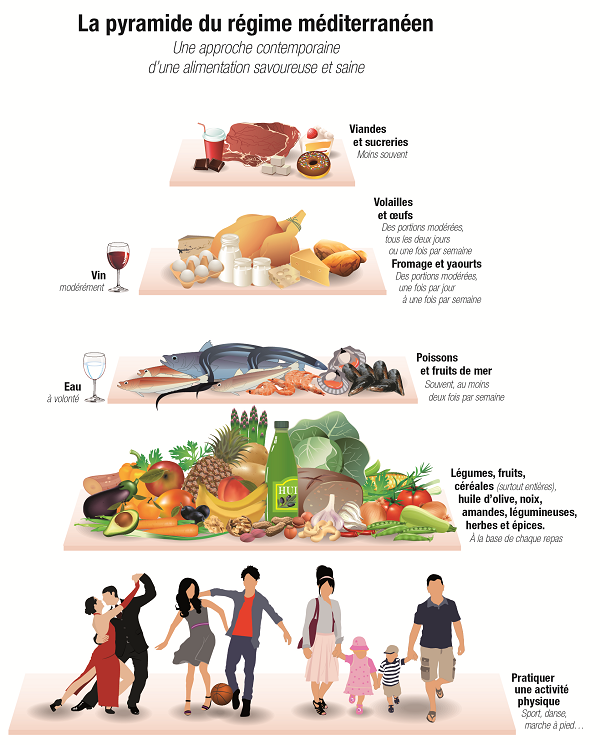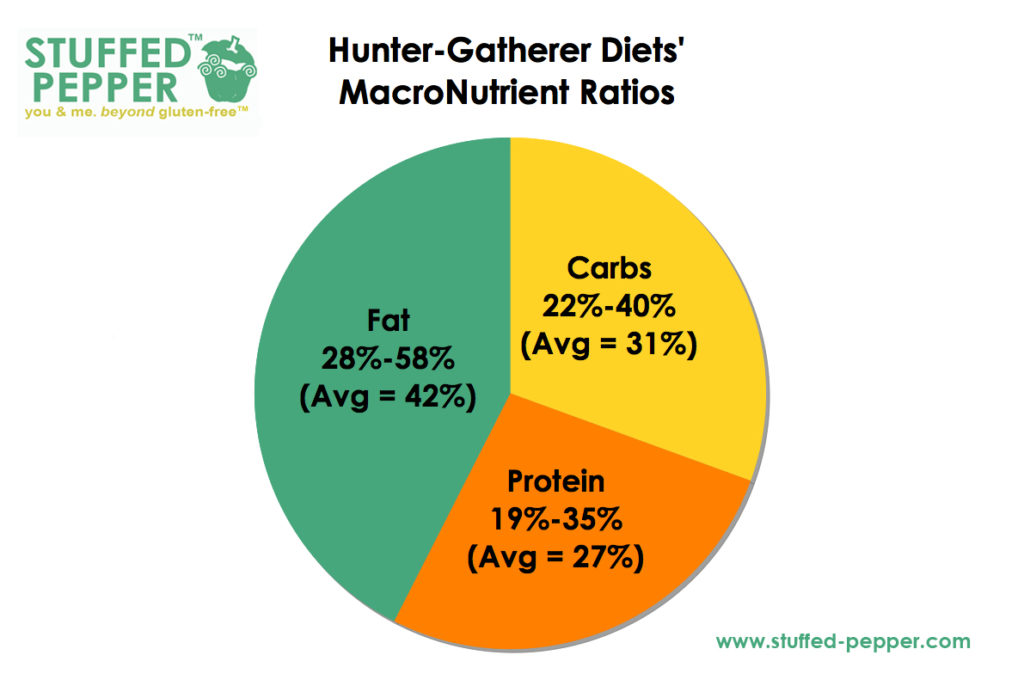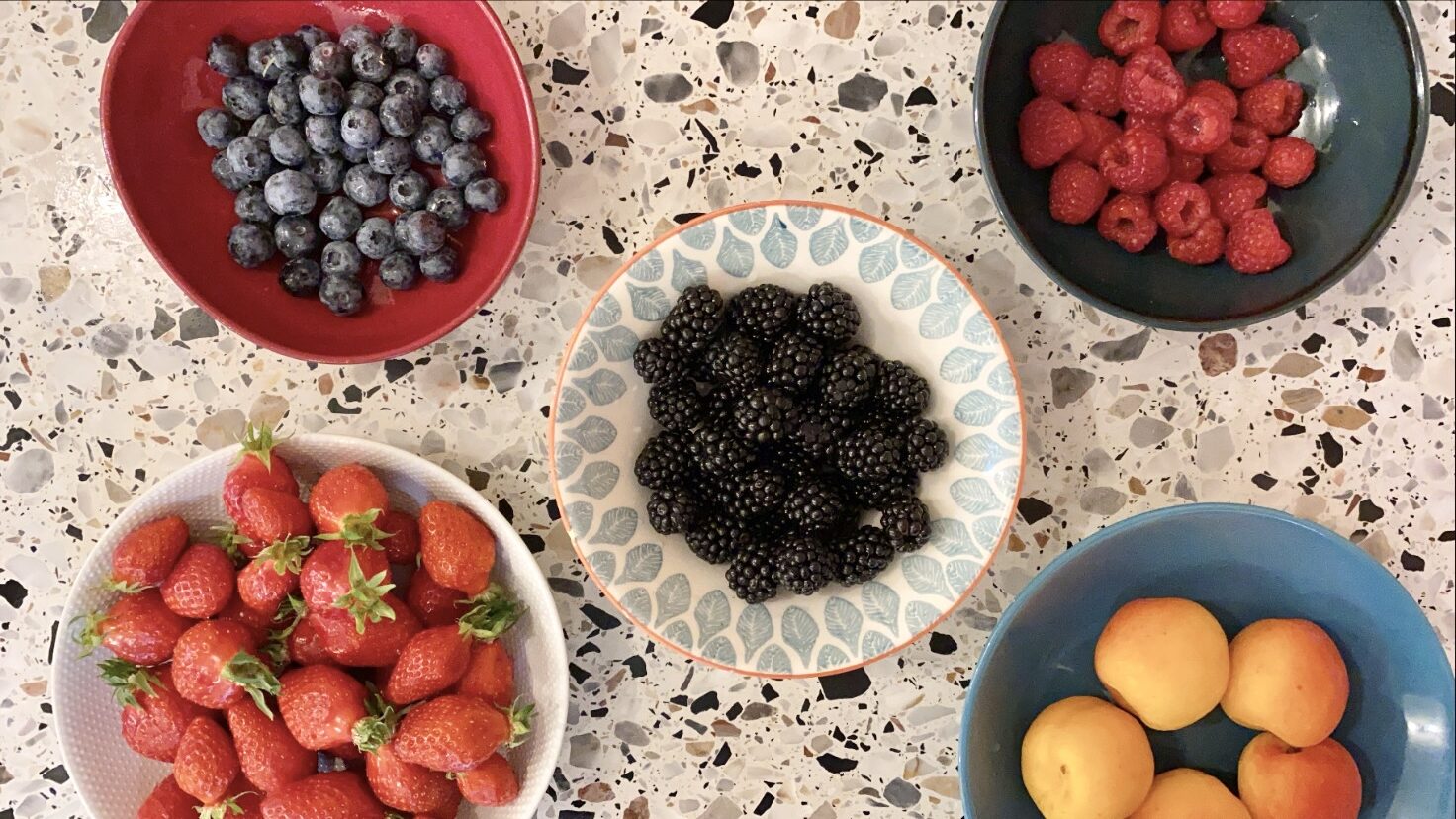The issue of fruit is a sensitive issuebecause fruit is a family of foods of varying degrees of complexity. high in sugar (via the fructose), while some fruits have nutritional properties closer to those of the vegetables than fruit. Because of their heterogeneity, we tend to confuse fruit and vegetables, and over-indulge in certain fruits to the detriment of others that would be far more beneficial to us.
Table of contents
Hide- 1.Definition of a fruit
- 2.Fruit in the Mediterranean diet
- 3.What we'll learn in this content
- 4.Fruit metabolism in the body
- 5.What is the daily fructose limit?
- 6.Fructose and corn syrup
- 7.Consequences of high fructose consumption
- 8.Fructose and blood sugar
- 9.Fruit and insulin index
- 10.Liver chronobiology
- 11.Fruits of today VS fruits of yesteryear
- 12.Fruit sugar content
- 13.The sweetest fruits
- 14.Fruits with the highest glycemic load
- 15.List of fruits with the least sugar
- 16.List of fruits with the lowest fructose content
- 17.Fruiting vegetables
- 18.How much fruit to eat and in what context?
- 19.Conclusion
So, if the maxim that we should eat "5 fruits and vegetables a day is, at first, a good way of introducing the general public to more natural foods, we quickly find ourselves tempted to eat 4 very sweet fruits every dayand a pseudo-vegetable, with all that this can entail for the body and our health.
Note: the audio format of this training is available below for the Blooness membersafter the general introduction.
What's more, since fruit is a natural food, it is de facto generally considered to be good for your health. Is this assertion justified? Is fruit really good for human health?
If we look at the health of Americans between 1920 and 1970, we see that they suffered the worst epidemic of cardiovascular disease during this period. In the chapter dedicated to the hunt for fat, we recall that this explosion in heart attacks was correlated with an increase in sugar consumptionand if we look at the diet of Americans over the course of the 20th century, we see that they were big fruit eatersand far fewer vegetables.
This content is part of the guide Blooness, the guide to the ideal human diet, the summary of which you can find here 🌱🥑
It was about tropical fruits such as bananas, citrus fruit and pineapples, i.e. fruit from countries where "the weather is always fine", i.e. summer fruit very high in sugarsand in particular fructose, a type of sugar that we will describe in this chapter.
There is therefore a correlation between the rise of metabolic diseases in Americaand more generally in the West, and increased fruit consumptionand, more generally, sweet and cereal products.
Of course, there are other factors involved, and the cause-and-effect link has not been established, but science has since shown that fruit, depending on its shape, the way it is eaten, the profile of the individual consuming it and the quantity consumed, is a good source of energy, are not good for human health in all cases. It could even be that consuming them above a certain threshold, at a certain frequency, and depending on the fruit chosen, could prove toxic to the body.
As is so often the case in nutrition, the devil is in the detail, and here we're going to dedicate a special section to that. an entire chapter of Blooness guide to the thorny issue of fruitto answer the question of whetherThey are a blessing or a curse for health, longevity and maintaining a healthy weight.
Definition of a fruit
We've known content dedicated to the key vegetables of the Mediterranean diet that some plants considered to be vegetables in culinary terms are actually fruits. These are classified as fruiting vegetables, such as tomatoes, avocados, olives and eggplants.
The reason these foods are botanically considered fruits is qthey contain within them the seeds of the plant. This characteristic makes these foods fruit, regardless of their sugar content.
In fact, the fruit is the edible organ of flowering plants, and this organ - the avocado or eggplant, for example - follows the flower and contains the seed or seeds. If we take the avocado, it contains a stone (i.e. a seed), and comes from a fertilized flower (that of the avocado tree). It is therefore a fruit.
There are some exceptions, such as the banana, which contains no seeds, pits or seeds as such, but does have seed embryos within it, which do not need to be fertilized. The banana tree has been domesticated by man through genetic selection, a process we have already discussed in the chapter dedicated to cerealscan be self-replicating.
As this definition of fruit is purely botanical, we will tend to specify here when we speak of generally sweet fruitThese include "fruit vegetables" such as bananas, strawberries or oranges, or "fruiting vegetables" such as tomatoes, eggplants or zucchinis, which are much less rich in simple sugars, as we explained in the large chapter dedicated to vegetables in the Mediterranean diet. Last but not least, a separate category of fruit rich in lipids concerns a minority of fruits such as olives or coconuts, for example, and we've already covered this type of food in this guide.
The question here is whether sweet fruit is good for you, in what quantities, and what the literature says about it. Mediterranean diet on this subject.
Fruit in the Mediterranean diet
Compliance with the Mediterranean on populations that have distinguished themselves by their longevity in good health revealed that the inhabitants of these regions regularly ate good-quality, organic fruit and vegetables grown under optimal conditions.
In addition to the various vegetables (and fruiting vegetables) that form one of the mainstays of theMediterranean diet (peppers, zucchini, tomatoes, fennel, arugula, cabbage) as well as herbs (parsley, mint, basil) and, of course, vegetables. herbs and spices which are among the best protective foods for health (garlic, onion), we have fruit.
The question remains how much and what priority to give to fruit versus vegetables. Car the food pyramid problem Mediterranean as seen everywhere, is that it puts vegetables, fruit, cereals, olive oil, (good) oilseedsthe pulses and herbs, spices and aromatics. And that's ahead of the protein intake that could come from fish, seafood, meat, eggs or dairy products, much to the chagrin of diet advocates. paleo or diet ketogenic with carnivorous tendencies.

If this food pyramid has the merit of putting the emphasis back on healthy foods Unfortunately, they've been ignored, forgotten and eaten far too little in the modern diet, whether out of laziness to cook them or simply out of ignorance or simple indifference, it has to its credit the fact that certain foods, such as fruit or cereals, are considered to be "the staple of every meal", with no further details on the quantity and, above all, the distribution of these foods.
This raises a number of questions, including
- Should fruit or cereals be the mainstay of meals, or can they be replaced by legumes - which are often less energy-dense - or even vegetables that are free of carbohydrates? carbohydrates like broccoli, cabbage or salad?
- When the Cretan diet speaks of cereals or legumes as the basis of each meal, are we talking about a basis as a qualitative prerequisite, i.e. a more or less essential presence at each meal, but possibly in very small quantities if desired, or are we suggesting that they should be quantitatively dominant on the plate and in the diet?
Depending on the answers to these questions, the metabolic consequences will not be exactly the same.
Some advocates of the carnivorous, ketogenic or even more generally balanced Mediterranean diet will support the idea that fruit and cereals - especially fruit and cereals as they are currently available in supermarkets, and which are moving further and further away from their ancestors through man's treatment - are the best way to eat them. should not be the basis of every mealIf not, at least not in terms of calorie intake.

On the other hand, some advocate a balanced intake of the three nutrients. macronutrientsOthers believe that it's better to choose your preferred ally in terms of energy intake - via carbohydrates, or via lipids - lowering one or the other by way of compensation.
Whatever formula you choose, the Mediterranean food pyramid doesn't answer these questions precisely, but it does support the general idea that legumes, cereals, fruit and vegetables - in other words, all plant foods - should form the basis of every meal, without knowing what priority to give to each of these food familiesand considering them all to be interchangeable, which isn't quite so simple.Otherwise, it would be too good to be true.
It's not a question of blaming this food pyramid, because as we pointed out just before, it has the merit of bringing globally healthy foods back into the spotlightto the detriment of sugary, salty snacks packed with bad flavours. fatsIn addition, protein intakes are sometimes too high for consumers' physical activity levels, and come from poor-quality meats.
It's more a question of specifying, according to the information available at the time, what an optimal, modern Mediterranean diet might look like in today's world.
And the fruit question - and to a lesser extent cereals - is part of this problem quite complex.
In fact, the fruits consumed in the Mediterranean diet are generally grapes, figs, peaches, strawberries, melon, apples, pears, etc. So far, nothing new as far as the benefits of eating this type of fruit for what they can bring to the table in terms of protective micronutrients (vitamins, mineralspolyphenols and antioxidants), from fibers and sugars in moderate quantities compared to a sweet pleasure derived from a processed food that's much higher in calories and often in fat at the same time, whether the treat is homemade or industrial.
In terms of gustatory pleasure, fruit not only provides the body with micronutrients, but they also provide wateras long as they are eaten fresh rather than dried, diluting their energy intakewhich is a good thing.
Now, the question is how often to eat them, and in what quantities. ? To answer these questions, we need to understand how fruit is metabolized by the body. We'll find out how fruit metabolizes differently from other carbohydrate-rich foods, and why this can be a problem if you eat too much of it. In fact, fruit contains a type of simple sugar that is very different from the glucose found in cereals or legumes, and we'll see that, contrary to appearances, this type of sugar, considered natural, can quickly become toxic in high doses.
Finally, we'll see if their consumption has an impact on blood glucoseand if so, to what extent. In this way, we can determine whether there are more or less opportune times to consume them.
Finally, we will the ultimate list of the best fruits to eat for your healthThe important thing is to adopt healthy habits on a regular, daily basis, while allowing yourself moments when you feel like it. The results come from 80 to 90% of healthy habits.
What we will learn in this content
- What type of sugar is contained in fruit?
- What's the difference between glucose, fructose and sucrose?
- Does fruit have an impact on blood sugar and insulin levels, and can it lead to insulin resistance?
- What health problems can be caused by eating too much fruit?
- Does the fructose extracted from fruit and used as a sweetener by industry have an impact on health, and if so, what is it?
- What fruit to eat low-carb and Mediterranean?
- Is fruit good for you?
- How much fruit do you eat a day?
- Which fruit for which diet?
As usual in this guide, we're going to define things clearly, not just for the sake of pedagogy, but because understanding the meaning of words teaches you how to handle concepts.
Premium Membership Required
You must be a Premium member to access this content.
New: Blooness Accelerated Programs
For quick results if you are looking for
lose fat permanently,
maintain stable energy levels throughout the day,
and prevent chronic diseases.
Immediate access to the Premium Guide + all current and future programs
Limited founding rate – will soon increase to €97

